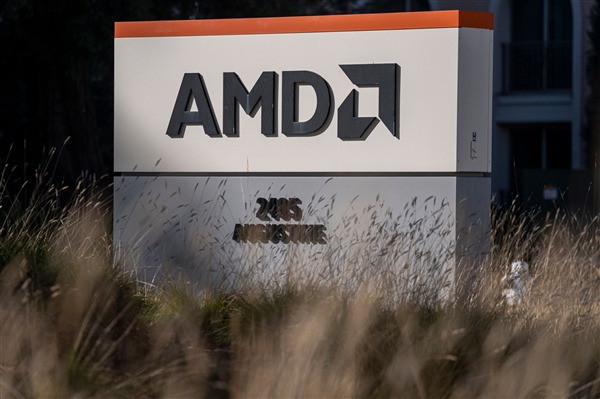Earlier this month at Computex, AMD introduced the Ryzen AI 300 series mobile processors, designed for next-generation AI-powered PCs. These new processors boast the latest Zen 5 CPU architecture, an upgraded RDNA3.5 GPU architecture, and a new XDNA2 NPU architecture.
AMD has integrated AI capabilities directly into the model numbers of these processors, emphasizing their importance.
The initial lineup includes two models: the Ryzen AI 9 HX 370 and the Ryzen AI 9 365. Both models feature significant architectural upgrades. Breaking from the long-standing design of 8 cores and 16 threads, these processors offer 12 cores and 24 threads, and 10 cores and 20 threads, respectively. The Ryzen AI 9 HX 370 combines 4 Zen 5 cores with 8 Zen 5C cores, while the Ryzen AI 9 365 features 4 Zen 5 cores and 6 Zen 5C cores.
Though detailed performance metrics were not released during the launch, some users have recently obtained engineering samples of the Ryzen AI 9 365 and conducted preliminary tests.
The Ryzen AI 9 365, which uses a FP8 package, was tested on a platform with 32GB of LPDDR5X-7500 memory. In the SPEC CPU 2017 benchmarks, the Zen 5 cores of the Ryzen AI 9 365 were clocked at 4.8 GHz, compared to the Ryzen 7 7735U (Zen 3+) and Ryzen 7 7840U (Zen 4), with the Zen 5C cores running at 3.3 GHz.
The performance of the Zen 5 cores improved by 22.28% and 9.71% over the Ryzen 7 7735U and Ryzen 7 7840U, respectively, while the Zen 5C cores operated at about 69% of the performance of the Zen 5 cores.
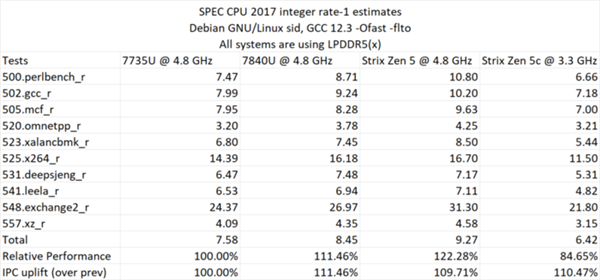
In terms of instructions per clock (IPC), the Zen 5 cores on the Ryzen AI 9 365 outperformed the Zen 4 cores on the Ryzen 7 7840U by 9.71%, and the Zen 5C cores by 10.47%.
Subsequent Geekbench 5 and 6 tests further highlighted the improvements. In the Geekbench 6 single-core benchmark, the Ryzen AI 9 365 (Zen 5 cores) outperformed the Ryzen 7 7735U by about 41% and the Ryzen 7 7840U by 13%. In multi-core tests, it was approximately 52% faster than the Ryzen 7 7735U and 24% faster than the Ryzen 7 7840U.
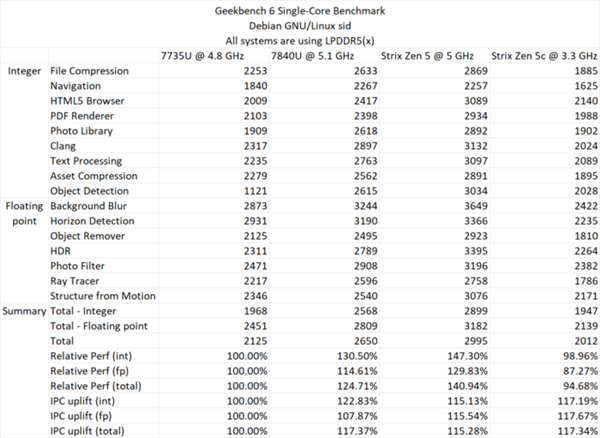
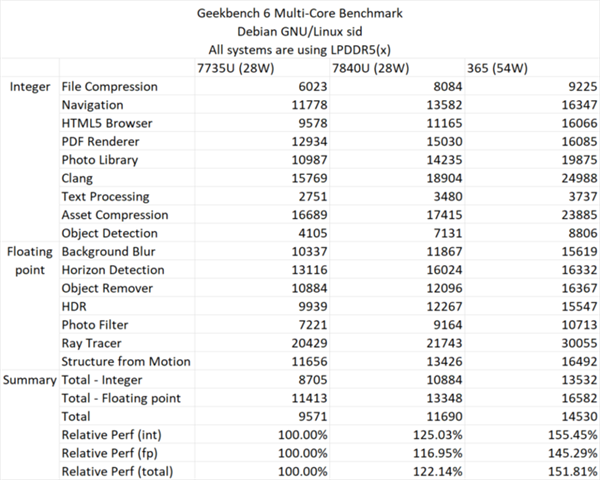
In the Geekbench 5 single-core test, the Ryzen AI 9 365 (Zen 5 cores) led the Ryzen 7 7735U by approximately 39% and the Ryzen 7 7840U by about 15%. In multi-core tests, it outpaced the Ryzen 7 7735U by about 68% and the Ryzen 7 7840U by about 33%.
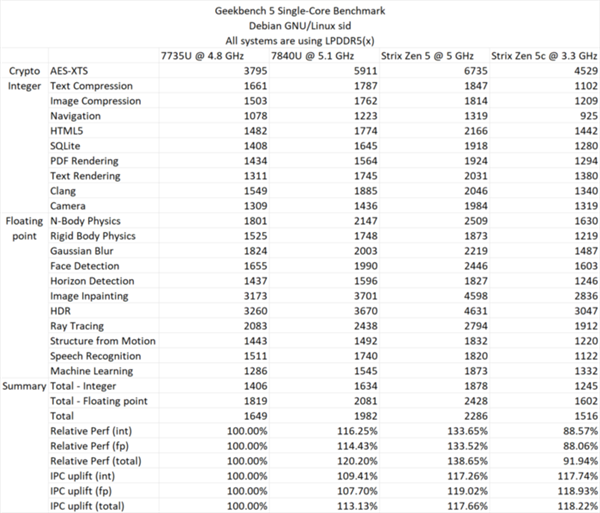
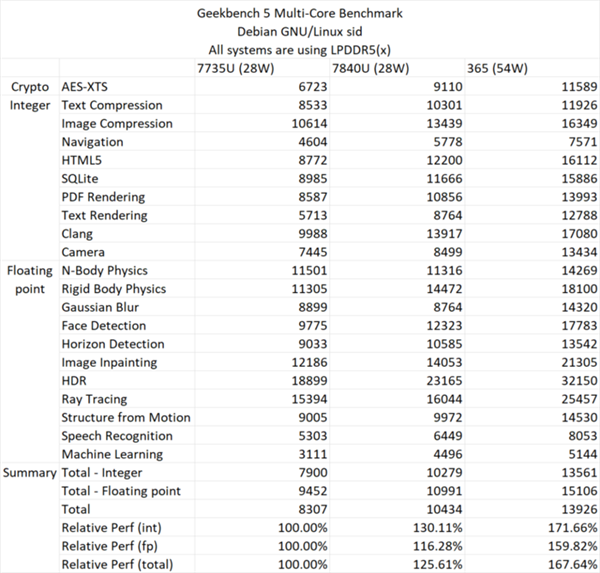
For IPC metrics, the Ryzen AI 9 365 showed boosts between 15.3% and 17.3% in Geekbench 6, and between 17.7% and 18.2% in Geekbench 5. This aligns with the average 16% IPC boost AMD announced during the initial launch.
Current test data suggests that the Ryzen AI 9 365 offers a substantial improvement over the previous generation Ryzen 7 7840U, with multi-core theoretical performance gains of about 20-30%. However, real-world performance gains will depend on subsequent application-specific tests.
Energy efficiency is another critical metric for mobile devices, but relevant data in this area is currently unavailable.
These initial tests of the Ryzen AI 9 365 indicate room for further optimization. The more powerful Ryzen AI 9 HX 370 is expected to be officially released next month.
Beyond CPU performance, the new RDNA3.5 architecture for core graphics and the NPU with 50 TOPS promise significant user experience improvements.
